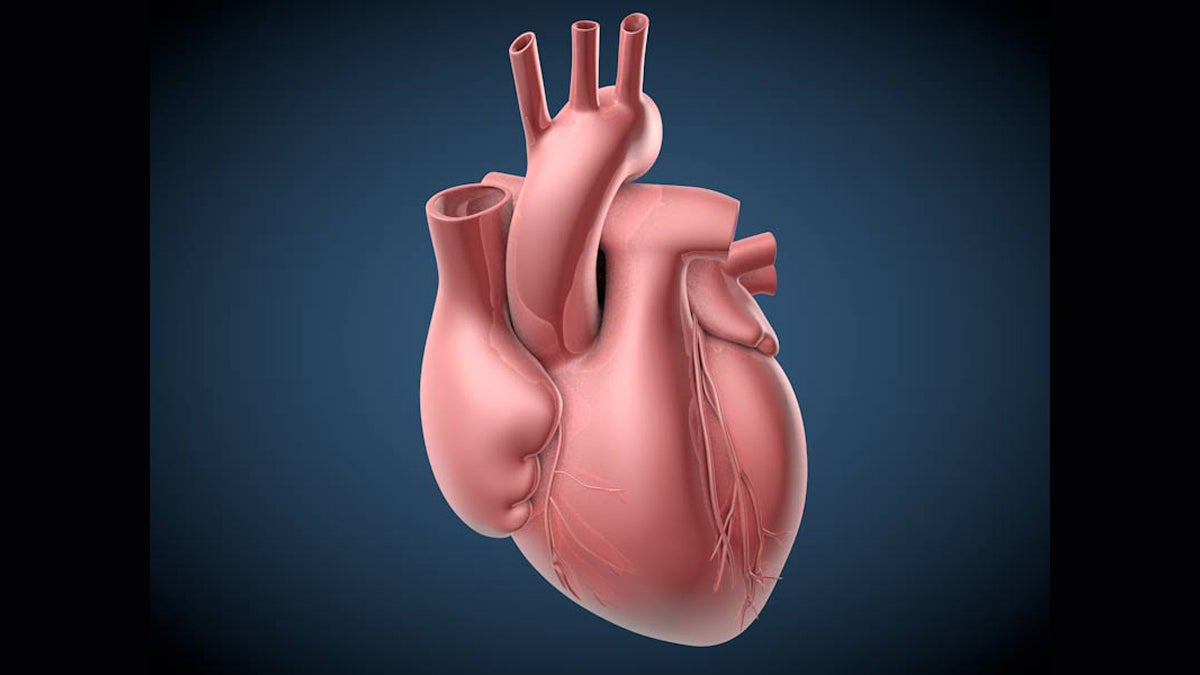Common antidepressant might also repair the heart, Temple researchers find

Pictured here is a normal human heart. Heart failure occurs when the heart muscle’s ability to pump blood is impaired. (Image courtesy of C. Bickel/Science Translational Medicine)
More than half a million Americans are diagnosed with heart failure every year. While drugs can stall the progression, none can reverse the damage. Until, possibly, now.
The surprising drug candidate, better known to psychiatrists, is paroxetine or Paxil. First identified in a screen by collaborators, Temple University researchers have now tested the antidepressant for its ability to restore heart function in mice that have suffered heart attacks.
“It worked exceedingly well,” said Walter Koch, senior author of the study, who also directs Temple’s Center for Translational Medicine.
With Paxil, heart pumping returned nearly to normal, and the tissue didn’t develop scars or grow in size, as it often does after a heart attack. The treatment outperformed beta-blockers, the current standard for heart failure. Animals receiving Prozac, an antidepressant similar to Paxil, did not experience improvement. The results were published Wednesday in the journal Science Translational Medicine.
The researchers tied the boost in heart function to Paxil’s ability to block an enzyme, GRK2, which leads to muscle cell death. Koch has been studying the enzyme for more than two decades, looking for small molecules that can serve as inhibitors. Paxil is the first identified inhibitor, and serendipitously, is already FDA-approved.
“If you’re going to treat a patient who has heart failure with an antidepressant,” said Koch, “why not give paroxetine? It may have this added benefit.”
It’s still too early to tell whether the antidepressant can truly be repurposed for heart patients without the mental illness. And the mice in the study were given doses about five times higher than those typically taken by humans.
“Probably the better outcome will be using paroxetine as a chemical scaffold to make new compounds,” said Koch. That type of investigation could lead to the development of an entirely new class of heart failure drugs.
WHYY is your source for fact-based, in-depth journalism and information. As a nonprofit organization, we rely on financial support from readers like you. Please give today.

